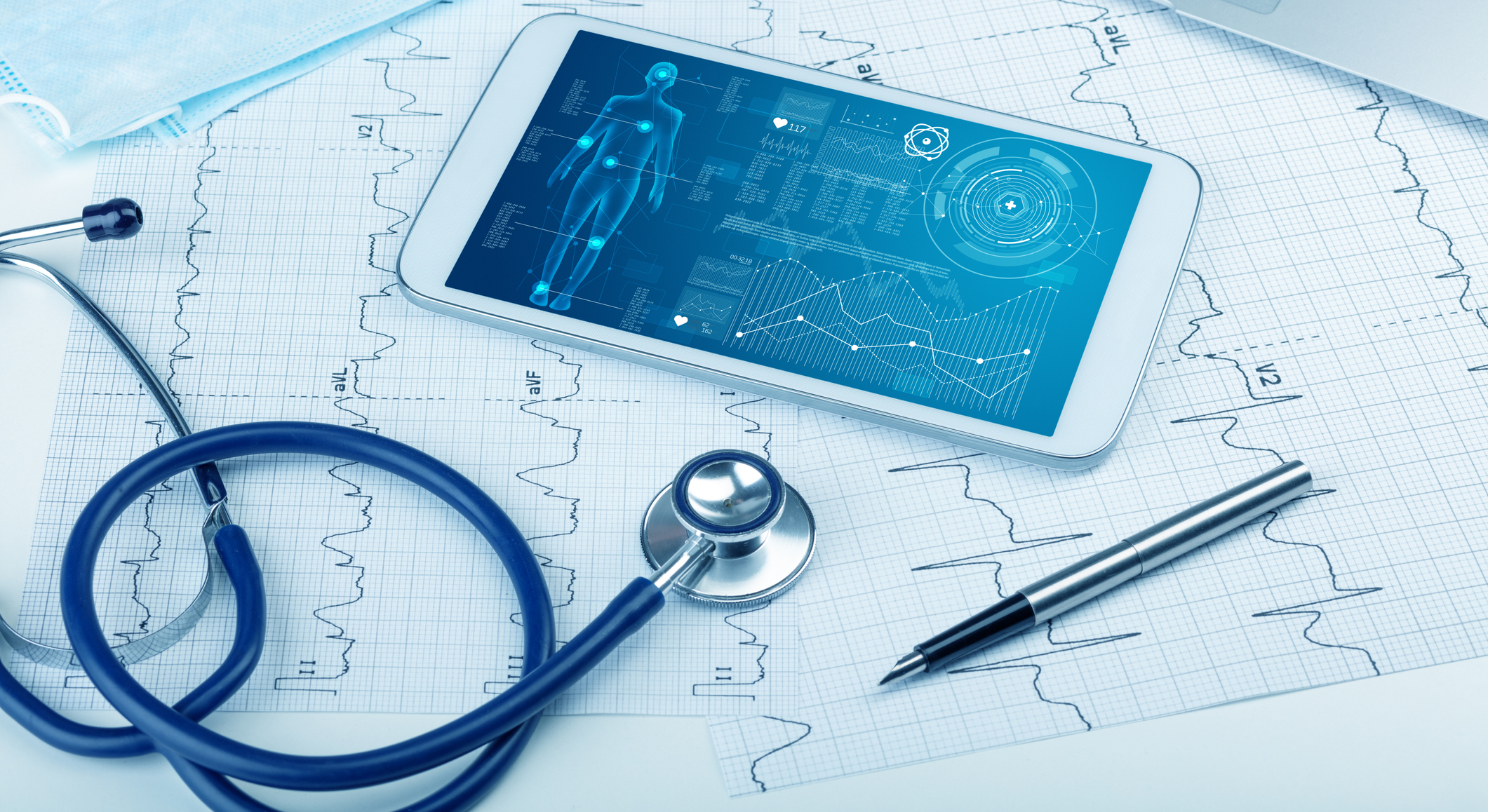
Real Patient Data Provides Real-Life Skills in Healthcare Data Science
Denver is fast becoming a hub for both the technology and healthcare, putting University College at the University of Denver in a unique position to be a leader in the intersection of the two.
Vast amounts of patient data are being collected every day, and professionals who can interpret and use that data to inform decisions are in a growing demand. In order to meet both the interest in digital health data science among students and the healthcare market’s needs for qualified employees, University College created a new graduate program, Health Informatics, which welcomed its first cohort in 2020.
Students in the Health Informatics program learn to leverage health data tools and applications to achieve business and research outcomes within the health sector. The experience they gain puts them at the forefront of the health industry, equipped with the technical, communication, and leadership skills needed to thrive in this quickly evolving field. Key to teaching students these immediately applicable, career-focused skills is the use of real-life, de-identified health data procured from actual hospital systems and claims databases.
“We are unique as far as this specific type of program,” said Rachel Rogers, assistant Health Informatics academic director and assistant teaching professor. “The students will be able to get into real, credible datasets to learn how to ask the right questions, mine for patterns and insights, and ultimately better understand how to interpret and provide context to the massive amounts of health data currently being collected and stored.”
About a month’s worth of de-identified, anonymous hospital data was obtained from HCA Healthcare, a network of more than 180 hospitals across the U.S. and UK. The data sets provided to the Health Informatics program offer a vast amount of raw beginnings to glean information. In addition, the procured data is in its unedited form, so students learn how to assess doctors’ notes, varying lab values, and more, just like they would in a real healthcare setting.
“If you think about a length of a stay, which is four days on average, students will have a chance to work with a lot of data on individual patients,” said Andy Draper, CIO for the Continental Division of HCA and Health Informatics faculty member. Draper was instrumental in forming the degree program, as well as procuring the health data sets.
In addition to the powerful data from HCA, the Health Informatics program has also attained a large data set from the Center for Improving Value in Health Cate (CIVHC), Colorado’s own all payer claims database.
“The combination of these two data streams gives students local, regional, and national data to grapple with while providing multiple viewpoints into health data science needed to master not only hospital system data, but the payer (insurance) and public health data as well,” said Dr. Bobbie Kite, director of the Health Informatics program.
Working with real data teaches students immediately applicable skills to organize and analyze patient information, as well as deliver insights that are reliable and accurate, in virtually any healthcare setting.
According to Draper, the Denver area is in a unique position to become an industry cluster for healthcare IT and data science. A cluster community features organizations and business with a symbiotic relationship that fosters creativity, innovation, and economic gain. Notable clusters include Silicon Valley in terms of technology and Detroit in terms of automotive production.
Dr. Kite also mentioned these efforts coincide with the large push into academic digital and virtual learning environments.
“Our new health data science concentration is especially focused on digital and virtual reality learning to deliver the practical application needed for immediate industry use while preserving the theoretical framework of its academic foundations.”
Denver’s economy, start-up support, and overall desirable location has attracted both business and a workforce that is ideal for the healthcare industry. The Health Informatics program is poised to both boost student career aspirations and meet employer’s hiring needs.
“There is a huge demand for healthcare data scientists, and innovation here is very aggressive. DU and its students have the opportunity to take leadership in this area,” said Draper.
The Health Informatics program offers three master’s degree concentration and certificate areas: Digital Health, Health Data Informatics and Analytics, and Health Data Science.
Digital Health focuses on the cutting-edge of current and emerging health technology, as well as how it affects and improves diagnosis, treatment, training, patient records, and financial transactions. Health Data Informatics and Analytics cultivates knowledge of both informatics and analytics related to the process of transforming data into information, knowledge, and then contextual insight. Health Data Science offers enhanced knowledge in machine learning, data science, and artificial intelligence, as well as how to leverage health data science tools and applications to achieve business and research outcomes within the health sector.
Interested in pursuing a graduate certificate (four or six courses) or master’s degree concentration (12 courses) in Health Informatics? Reach out to Enrollment Manager Stephanie Swanson (Stephanie.M.Swanson@du.edu, 303-871-2492).
-
June 26, 2024
Guest Post: It’s Time to Get Savvy on AI Use and Security Risks
Unless AI end-users and employees are well educated on appropriate AI use, it’s increasingly likely that AI-driven vulnerabilities will be exposed.
-
June 18, 2024
When Everything Can Be Mapped, Maps are Everything
Joseph Kerski, a GIS adjunct faculty member and Enrichment Program instructor at DU, is an evangelist for geography, mapping, and GIS education.
-
June 7, 2024
Enrichment Classes Offer Taste of Cutting-Edge Research
With the free R1 Series within the Enrichment Program's slate of short noncredit classes, you can get a taste of DU's prominent research activity.
-
April 15, 2024
DU Supply Chain Expert Sets Forth Climate Change Solutions in New Book
A new book from Supply Chain Management Program Director Jack Buffington tackles the immense problem of climate change with some innovative thinking.